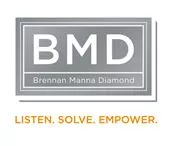Overview
The Department of Health and Human Services ("HHS") published Part II of the No Surprises Act on September 30, 2021, which will take effect on January 1, 2022. The new guidance, in large part, focuses on the independent dispute resolution process that was briefly mentioned in Part I of the Act. In addition, there is now guidance on good faith estimate requirements, the patient-provider dispute resolution processes, and added external review provisions.1
Federal Independent Dispute Resolution
The federal independent dispute resolution process is limited to the services under Part I of the Act for which balance billing is prohibited.
The purpose of the dispute resolution process is for out-of-network providers and facilities to determine the out-of-network rate after a conclusion is not made after a 30-day "open negotiation." This open negotiation period must be initiated first, and only when it fails can the federal independent dispute resolution process then begin, by first being initiated by either party. The required administrative fee for 2022 is $50 per party.
Both parties then must decide on a "certified independent dispute resolution entity," which must then certify it has no conflicts of interest with either party. If one of these steps cannot be met, the Department of Health and Human Services will select an entity for the parties. The entity must choose between one of the parties' offers for an out-of-network amount, which will be binding. The losing party will then be liable for the entity's fee.
Good Faith Estimates
Good faith estimates must be given to uninsured patients for expected charges, including if the services can be provided by other providers or facilities. HHS uses the example of surgery, and states that the good faith estimate would include the cost of the surgery itself, as well as anesthesia, labs, tests, etc. However, it will not include services that would be scheduled separately even though they may be related, such as a physical therapy or a pre-surgery appointment.
Patient-Provider Dispute Resolution
In addition to the federal independent dispute resolution process, a patient-provider resolution has been added in order to resolve instances where a patient received a good faith estimate and then is billed "substantially in excess," which has been defined as $400 or more. Essentially, this type of dispute resolution requires the patient to have: (1) received a good faith estimate; (2) the patient initiated the process within 120 days of receiving the bill; and (3) the bill the patient received was $400 or more than the good faith estimate. The fee for this process will be $25, to keep the process accessible to consumers.
External Review
Building on an already established rule - in the case of adverse benefit determinations, the scope of external reviews will also apply to determinations involving compliance with the new surprise billing and cost-sharing provisions under the No Surprises Act. Additionally, otherwise-grandfathered plans will also be subject to these provisions.
Conclusion
Part II of the No Surprises Act introduced a lot of information for providers and facilities to unpack! If you have any additional questions about a specific topic, or Part II of the Act in general, reach out to Healthcare and Hospital Law Member Amanda Waesch by phone at (330) 253-9185 or by email at alwaesch@bmdllc.com. Additionally, the interim final rule can be found here. Click here for information on Part 1 of the Act, Notice Requirements.
Footnote
1 Centers for Medicare and Medicaid Services, Requirements Related to Surprise Billing; Part II Interim Final Rule with Comment Period, (Sep. 30, 2021) https://www.cms.gov/newsroom/fact-sheets/requirements-related-surprise-billing-part-ii-interim-final-rule-comment-period.
The content of this article is intended to provide a general guide to the subject matter. Specialist advice should be sought about your specific circumstances.



